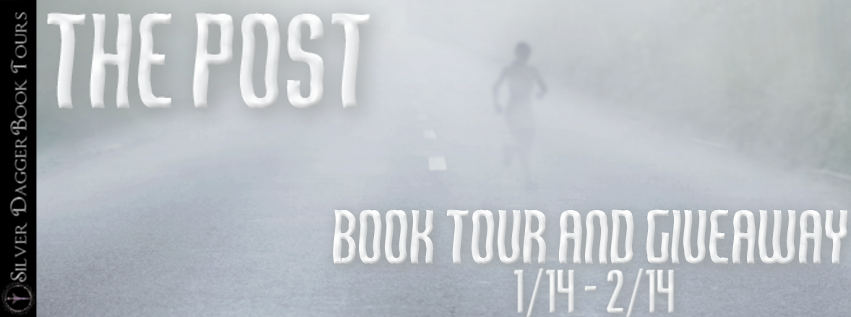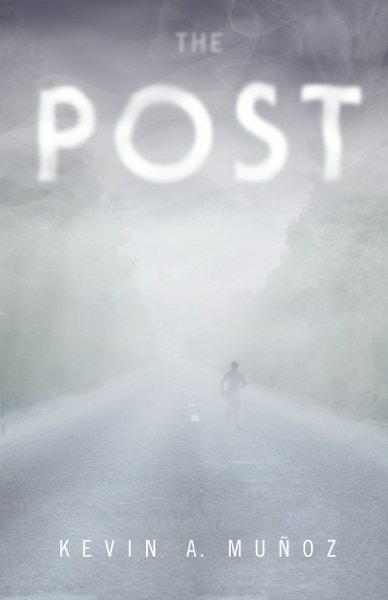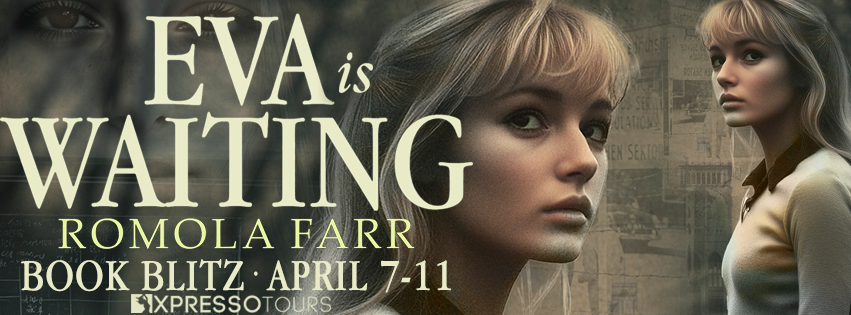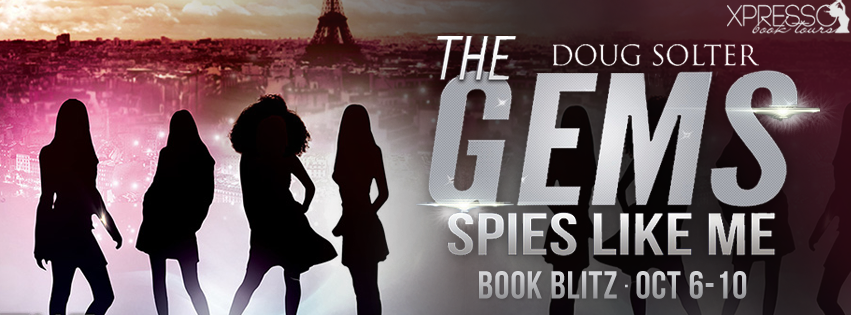Thursday, January 31, 2019
Book Tour + Review + #Giveaway: The Post by Kevin A. Muñoz @drmunoz @SDSXXTours
The
Post
by
Kevin A. Muñoz
Genre:
Dystopian Thriller
Ten
years after the world’s oil went sour and a pandemic killed most of
the population, Sam Edison is the chief of police of The Little Five,
a walled-in community near Atlanta, Georgia. Those who survived share
the world with what are known as hollow-heads: creatures who are no
longer fully human.
A
man and a pregnant teenager arrive at the gate and are welcomed into
the town. They begin to settle in when suddenly both are murdered by
an unknown assailant. In the course of investigation, Chief Edison
discovers that the girl was fleeing a life of sexual slavery, and
that some members of the Atlanta community were complicit in the
human trafficking network that had ensnared her.
In
retaliation for Edison’s discoveries, agents of the network abduct
the stepdaughter of the town’s mayor. Chief Edison and three
companions track the kidnappers to Athens, Georgia, where they
discover that the entire city is engaged in human trafficking. By the
time Edison has recovered the kidnapped girl, the other three
rescuers have been killed, leaving Edison alone to bring the mayor’s
stepdaughter home while evading both human and non-human monsters.
Against such great odds, will Sam ever make it to Little Five alive?
Amazon
* Apple
* B&N
* Google
* Kobo
“So
it’s true? People beyond the wall? On foot?” She shoves her thick glasses back
up the bridge of her nose.
“That’s
what I’m told.”
“Ask
them if they have any copper wire. We’re running low, and I’d really like to
have spare wire in case Leuko has trouble again.” Leuko is a white Volvo
station wagon. “Oh, and glow plugs. That’s what we really need. But they
probably don’t have those. No one bothers to keep them around if they don’t
know what they are.”
“I’ll
ask, but I don’t think they came bearing car parts.” I walk more briskly,
following Luther, until it occurs to Braithwaite that I’m in a hurry, and she
wanders back onto her property, still asking questions but no longer directing
them at me.
The
tunnel is just beyond the biodiesel farm, and the tunnel wall is one third of
the way through on both northbound and southbound sides. We built the wall
closer to our side of the tunnel so that we would have some measure of control
if any shriekers found their way here and decided to call their friends. Most
days, we only get one or two hollow-heads, and if they come too close, they’re
easily dispatched with arrows. There is always one rifleman from the sweep team
on the wall as well, but they spend most of their days playing solitaire.
Mayor
Aloysius Weeks is waiting for us with my other two officers, Pritchard and
Kloves. Pritchard has about twenty years on me, but he’s a good shot. I brought
him on mainly to satisfy the previous mayor’s paranoia about an invasion of the
infected. Pritch has done a good job keeping the peace since then, so I haven’t
seen any reason to let him go. And Augustus Kloves was my idea: a big,
powerful
black man with an intimidating voice, he styles himself as my enforcer whenever
someone winds up too drunk to go home quietly at three in the morning. I like
to tell myself that in his
pre-collapse
life he had a paradoxically benign occupation, like a certified public
accountant, but it doesn’t matter. The end of the world changes a person. I’ve
never seen an exception to that rule.
Mayor
Weeks is Regina’s husband, but if I didn’t already know that, I would never
have guessed it. Where Regina is friendly and forthcoming, Weeks is closed off,
reticent. He never says anything
with
ten words that he could say with none. I find this to be an admirable quality
in a politician. There is a much lower risk of hearing a lie. Perhaps it comes
from his time as a professor, before the collapse. He told me once that he used
to teach a subject called “Southeast Asian religions.” One of his books is near
the bottom of a stack I haven’t read yet.
The
mayor shakes my hand as I approach the tunnel door. “A young girl, maybe
fourteen, and a man. Thirties. With a shotgun.”
So
that’s why I was called out here. With a few quick gestures I position Pritch and
Kloves on the upper platform and Luther at the reinforced door at ground level.
Pritch and Kloves make themselves
visible
and draw their weapons. Once they’re in position, I spin the combination lock
to the door and pull off the chain. I step through, and for the first time in
what feels like ages, I am outside the Little Five.
I
keep my own weapon holstered and my arms relaxed at my sides. Luther closes the
door and locks it behind me. Before I approach the strangers, I scan past them
at the light beyond the tunnel, checking for signs of hangers-on. Of course, if
the strangers had made enough noise to be noticed by a group of hollow-heads,
they wouldn’t have gotten as far as the tunnel wall. Clearly, they were
careful. If there are any roaming hordes nearby, they’re here by chance alone.
“Good
morning,” I say, keeping my body language as nonthreatening as possible.
The
young woman is pregnant. That’s easy enough to see; she’s at least seven months
along. Her clothes are torn and dirty. Her shoes are missing shoelaces and held
together with old duct tape. She
hasn’t
washed in days, at least. She looks hungry, perhaps confused.
The
man is not much better, but he at least seems to have his wits. Weeks was
right: he’s in his late twenties or early thirties. He holds his shotgun like a
hunter, with the stock under his shoulder and his hand under the barrel. He
carries it like it’s loaded, though, and when he answers my greeting he swings
the barrel a few inches in my direction.
“Good
morning,” he replies, looking up at the upper platform where Pritch and Kloves
are watching. His accent suggests he’s from South Carolina. “We don’t mean any
harm. We weren’t sure there was anyone still living here. But we could use some
food and shelter, and the girl could use a place to rest.”
Back
in the early days, we let in anyone who found us and counted ourselves lucky
that we had one more person who could help us rebuild. From time to time that
turned out to be a bad idea, but on balance, it worked for us. I, myself, was
one of the first people let through what was a much smaller wall at the time.
Even Mayor Weeks didn’t arrive until a few years after we’d built the perimeter
fence.
The
fact that the man has a shotgun doesn’t suggest anything other than that he has
a head on his shoulders. Outside of the protected neighborhoods, Atlanta and
presumably the rest of Georgia—and maybe the whole continent—are unsafe for
travelers on foot. Hollow-heads haven’t been as much of a problem recently in
this area, but I don’t know how far these two have traveled. So I choose to
give them the benefit of the doubt. “If you’re willing to let us secure that
weapon until you leave, I’ll consider letting you through the wall.”
It
sounds reasonable enough, but most men in his position wouldn’t take me at my
word. He doesn’t know anything about us. If we take away his only protection,
that will leave him vulnerable to whatever we might want to do with him—or to
the girl with him. I expect him to try to bargain with me, to find a way to
keep his weapon and still be permitted inside. But he offers no resistance to
my demand, setting his shotgun on the ground and pushing it out of reach with
the toe of his badly worn boot.
I
glance back at my men on the wall. They have the same curious expression that I
must be wearing: they’re as familiar as I am with how this dance is supposed to
go.
“Do
you have a doctor?” the stranger asks.
I
rest the palm of my hand on my holstered pistol and look over the young woman a
second time. She looks far too young to be carrying a child—but I’ve seen
younger. The combination of a collapsed population and no functioning condom
factories makes for a lot of teen mothers these days. We don’t exactly
encourage pregnancy, but we can’t quite bring ourselves to show righteous indignation
when it happens. We need the babies more than we need the morality.
But
none of that is what worries me. Doctors mean illness, and that could mean
fever. And fever drags along with it the potential for something worse. At last
count, the Little Five boasted a population
of
six hundred—and four people whom we call doctors. I wish we had twice as many.
They are indispensable to us.
The
man must realize that I’m giving his companion more scrutiny, as he says, “The
last doc she saw said she has—” and now he says the word carefully, to be sure
not to make a mistake—“preeclampsia.”
The
air goes thin in my lungs. Had someone else been standing here in my position,
the man might have needed to say more, to plead more. But I know the word. I
lost my wife two years before the collapse and nearly lost my unborn daughter
because of what preeclampsia can become. The thought of this young woman
suffering from seizures and stroke is enough to goad me into action.
“Luther,”
I shout, “open the door.”
The
chain rattles against the metal, and the door swings open with a low creak. I
usher the strangers in, and as the woman passes me, I think I can hear her
whisper, “Thank you.”
I
am about to follow them back into the Little Five when I spot another figure
moving on the far side of the tunnel.
“Is
anyone else with you?” I hiss at the man. He says no, and I draw my weapon. I
aim in the direction of the newest visitor, knowing that my officers will
understand the gesture. It doesn’t take long before Pritchard grabs binoculars
and identifies what I’m seeing.
“Looks
like a hollow-head, Chief,” he says in his usual raspy, homespun tone.
My
skin crawls under my coat. If handled calmly, a lone hollowhead is not a real
threat. But we don’t handle them calmly, even after all this time. They look
like human beings, but they behave like animals, and on some unfortunate
occasions one or more of us will recognize a friend or loved one who was lost
to us long ago. We try to think of them as being already dead. I’m sure I’m not
alone in feeling a complex combination of relief and remorse every time I have
to shoot one. They may be empty shells, but they were once like us, and they
are most certainly still alive. In the depths of our gallows humor, we
sometimes wish they were truly “the living dead.” Then, at least, we could put
them down without feeling like monsters.
Instead,
they are hollow-heads. The pandemic that ended the world made its mark by
consuming chunks of its victims’ brains. The parts that control the higher
functions are little more than slop
sloshing
around inside the cranium. Personality is gone. Memory is gone. Gone,
too, are all the cares of the world and all vestiges of civilization.
There
is no cure. There was never going to be any cure. When the hollow-heads first
appeared, the good oil was all but gone, and we were already out of time.
Braithwaite
and one or two of the other mathematically inclined eggheads in the Little Five
once did what they called a “back of the envelope” calculation and figured that
ninety percent of the world’s
population
succumbed to the disease. The entire world’s survivors, then, were less than
twice the population of pre-collapse America. Less than the population of
India. Of the ten million people who
lived
in Georgia before, fewer than a million survived. How many are still alive
today is impossible to know.
The
hollow-heads are survivors, too. But they survive in a different world from
ours, and they don’t do back of the envelope calculations, or remember that
there once was an India, or an America, or a Georgia.
They
travel in packs, most of the time, but have just enough brainpower to send off
scouts in pairs and threes to search for food—wild dogs, cats, deer, the
occasional goat, and people. They also seem to be able to tell the difference
between the run-of-themill hollow-head and the shriekers, and use shriekers as
scouts when they can. Most hollow-heads don’t make noise: they remain uncannily
silent,
even when they’re agitated. A few, though—maybe one in twenty—still know how to
scream. And because they don’t care about their voices, and don’t have the
usual social anxieties about looking foolish in public, when they scream, they scream. Louder than anyone I’ve ever heard.
We
make sure to put shriekers down quickly, remorse and selfdoubt be damned.
The
hollow-head at the far end of the tunnel looks to be alone.
It’s
female, wearing rags that were once proper clothes, with bloodcaked bare feet.
For whatever reason, the infection is a jealous god, and hollow-heads don’t get
sick like the rest of us. They don’t get tetanus, they don’t die of gangrene,
they don’t suffer from any of the ailments that come from being bruised,
scratched, stabbed, or cut. They can bleed out like anyone, and if they get
gut-shot they
will
eventually die of starvation or blood loss, but I’ve been assured by people who
claim to know that hollow-heads don’t even die from having their own shit seep
into the blood stream. Frostbite still
affects
them, even if their limbs won’t rot, and some of our scouts have seen them chewing
off their own dead arms. But even that is only helpful to people living in the
north. Here in old Georgia,
where
the coldest day is like a Pennsylvania spring morning, it’s not enough.
This
hollow-head is intact, all of its parts in the right places, which makes it
more dangerous than the average. Still, I’m the one with the pistol. I wait and
watch to see if it realizes I’m here, but all it does is shamble from one side
of the tunnel to the other, munching on something hanging from its mouth. A rat,
maybe. Because hollow-heads operate entirely on instinct, I can’t rely on this
one feeling full and deciding not to bother with me. If it sees prey, it will
attack, full stomach or no, and if it’s a shrieker, it will alert its pack.
Shooting
a gun attracts hollow-heads only about half the time.
Maybe
the sound isn’t natural enough, or it reminds their hollowedout brains of
thunder. No one knows. They certainly chase after voices, loud footsteps,
biodiesel engines, and just about anything
else.
Even so, I don’t want to waste a bullet at this distance, with this light. I
inch forward, keeping as quiet as I can, trying to stay out of its field of
vision. It reaches the northbound side of the tunnel
and
stops to rub against the concrete like a dog scratching an itch. A few steps
closer and I will be confident I can get a good shot to the chest. But that’s
not enough: I need to shoot the head. If she’s
a
shrieker and I leave her with one good lung, she can still cry out in the few
moments she has before she dies.
A
perverse part of me wants to holster the pistol and use my knife, but I’m not
that stupid. Being bitten by a hollow-head is almost always a death sentence.
Sepsis sets in, the fever comes, and
then
you get six hours of feeling better than you ever have before, as every bad bug
in your system is eradicated by the resurgent infection. But from there the
descent is quick as your brain melts away
in
your skull. I’ve seen it happen more than a few times, and the worst part,
without question, is being aware of your own devolution.
It’s
like suffering from an aggressive dementia that destroys you between breaths.
The
hollow-head stops pressing against the wall and turns, its glassy eyes finding
me at last. Its shambling motions give way to the instincts of a predator in
sight of large prey, and it propels itself
toward
me, arms reaching, blood-caked hands grasping for me. It shows blackened teeth
and opens its mouth to scream, but I lodge a bullet in its throat. The body
collapses immediately, a gurgling
sound
pouring out of its neck along with the blood.
My
gun arm feels heavy, as if the moral ambiguities had weight. One would think
that after ten years this would get easier. And maybe it has. Just not enough.
I don’t recognize the one I’ve killed, but it—she—used to belong somewhere. Her
face once made her mother smile. I take a deep breath and remind myself not to
think about such things.
I
holster my weapon and return to the wall, fetching the stranger’s shotgun along
the way. Luther chains and locks the door behind me, and my other officers come
down from the upper deck.
Before
I turn my attention back to the visitors, I tell the guards on duty to watch
for more hollow-head scouts and to clear the body from the road.
It has been 10 years since the world as Sam Edison knew it
ended. Sam is the chief of police in what is now known as The Little Five. The
Little Five has walls surrounding it keeping the humans inside safe from the
zombies or hollow-heads as they are called. The Little Five is a community
close to Atlanta, Georgia.
One day two strangers show up at their gates, a man and woman
who is pregnant. The woman is in need of medical attention from wounds that are
not related to her pregnancy. Later the man and woman are found dead.
After their death Sam learns of a human trafficking ring
going on in the surrounding area and that the pregnant woman was a victim of these
monsters.
When the mayor’s step-daughter is kidnapped Sam knows it has
to be the traffickers and sets out to find her. Sam with the help of a group of
friends set out to find her but they not only run into hollow-heads along the
way but people that are more monster than humans as well. Sam and crew have to
fight their way through walls of hollow-heads and monsters to find the one they
are looking for.
The Post is filled with excitement and action on almost
every page with enough zombie killing and monster fighting to keep you hooked.
There is lots of action but The Post has a few secrets up its sleeve that it
holds on to keeping you guessing and wondering.
When I read the summary for The Post I was hooked right away
but if I am honest I was actually hooked when I found out the genre. Yeah that’s
me I love dystopian and apocalyptic.
If you like the TV show The Walking Dead then you are going
to love The Post.
Kevin
Muñoz grew up just outside of Philadelphia. After wandering across
the country for a few years, he received a PhD from Emory University
in 2008. A little later, he decided to leave the academic life behind
to pursue his first passion: writing. He has lived in seven U.S.
states over the years, observing and adopting each new place as
settings and inspiration for his fiction. He spent fifteen years in
Georgia, where the seeds of THE POST were planted. He now lives near
Seattle with his two beagle traveling companions.
Follow
the tour HERE
for exclusive excerpts, guest posts and a giveaway!
Labels:
Book Tour,
Dystopian,
Excerpt,
Giveaway,
Kevin A. Muñoz,
Review,
Silver Dagger Book Tours,
The Post,
Thriller
Subscribe to:
Post Comments (Atom)
































































0 comments:
Post a Comment